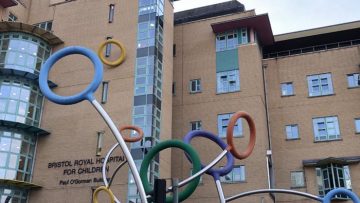Why specialist teachers?
As explored in the Royal Society’s State of the Nation Report (2007)[2] there is no standard definition of Subject Specialist teachers. Recent Ofsted reports[3] have highlighted how teacher subject knowledge and understanding contribute positively to teaching and learning at both primary and secondary level. Having a clear definition should make it easier for government to quantify the number of specialist teachers of mathematics and set appropriate targets for recruitment and retention.
In addition, a clear definition of Subject Specialist should assist in establishing clear and unambiguous criteria for Chartered Mathematics Teacher status. Please note that this document refers to teachers of mathematics in England. Scotland has its own rules for subject specialist teachers which are implemented by its GTC (www.gtcs.org.uk).
Secondary Teachers of Mathematics
‘SCORE makes a clear distinction between subject specialism and teaching expertise and uses ‘specialism’ to refer to the subject knowledge gained by a teacher through their degree and/or employment outside of teaching (i.e. industry).’ (2011: para. 12) It suggests that ‘to be considered a Subject Specialist for the purpose of data collection, the qualified teacher will have gained at least one of the following: a relevant degree; sufficient experience in the subject through employment; or a qualification from a 24-week (minimum) Subject Knowledge Enhancement (SKE) course’ (2011: para. 17)
In England, part-time SKE courses for experienced non-specialist teachers also enable teachers to become specialist teachers.
A relevant degree is usually one that includes at least 50% mathematics (i.e. 180 credits). On the DfE website[4] it lists the following undergraduate course code stems as likely to be suitable:
- G100 Mathematics
- G200 Operational research
- G300 Statistics
- G900 Others in mathematical and computing sciences.
Given the pervasive nature of mathematics and the number of subjects which depend heavily on it, for example, physics, electrical, mechanical engineering etc., this list may be too restrictive and a failure to recognise many excellent teachers who should be properly regarded as specialist teachers of mathematics. The current (2007) Mathematics Benchmark Statement includes the following description of the different types of programme:- ‘Common ground for all programmes will include basic calculus and basic linear algebra.’ These are key areas of knowledge for specialist teachers of mathematics that are usually acquired in the study of physics or engineering degrees etc. For this reason, the IMA advocates that graduates from these courses who succeed on a subsequent mathematics initial teacher education programme also be regarded as mathematics subject specialists.
A long SKE course allows graduate potential teachers usually with an A level but without 50% mathematics in their degree to study school mathematics from an advanced perspective. This enables them to develop an understanding of fundamentals and connections in mathematics essential to becoming an effective teacher of school mathematics.
There are many experienced teachers in secondary school who teach mathematics but are not subject specialist teachers. Teachers who complete extended courses (typically at least one year) that allow them to develop their knowledge and understanding of mathematics alongside developing subject pedagogy are also deemed specialist teachers.
Primary Teachers of Mathematics
Almost all primary teachers are teachers of mathematics. Very few have qualifications in mathematics beyond GCSE grade C, although most will have studied mathematics subject knowledge for teaching during their initial teacher education (ITE) programme. Following the Williams’ review of primary mathematics education[5] the government introduced the MaST (mathematics specialist teacher) programme in response to recommendation 3:
There should be at least one Mathematics Specialist in each primary school, in post within 10 years, with deep mathematical subject and pedagogical knowledge, making appropriate arrangements for small and rural schools. Implementation should commence in 2009 and be targeted initially to maximise impact on standards and to narrow attainment gaps.
This funded Masters level professional development programme for experienced primary teachers enabled them to become the specialists envisioned. Primary teachers who complete the MaST programme are specialist teachers at primary as they have developed their knowledge and understanding of mathematics alongside developing subject pedagogy, leadership and management.
Recently ITE courses that allow a primary teacher to specialise in mathematics from the outset have been introduced in England. Minimum entry requirements include an A level in mathematics. The take-up by both providers and prospective teachers has been modest. Graduates of these courses should be considered specialist teachers of mathematics.
March 2015
[1] Informed by SCORE (2011) Subject specialism teaching in the sciences: definitions, targets and data London: Royal Society
[2] Royal Society (2007) The UK’s science and mathematics teaching workforce http://royalsociety.org/uploadedFiles/Royal_Society_Content/education/policy/state‐of‐nation/SNR1_full_report.pdf
[3] Ofsted (2008) Mathematics: Understanding the Score; Ofsted (2012) Mathematics: Made to Measure
[4] http://www.education.gov.uk/get‐into‐teaching
[5] Williams, P. (2008) Independent review of mathematics teaching in early years settings and primary schools
Schools and Further Education Committee
March 2015



